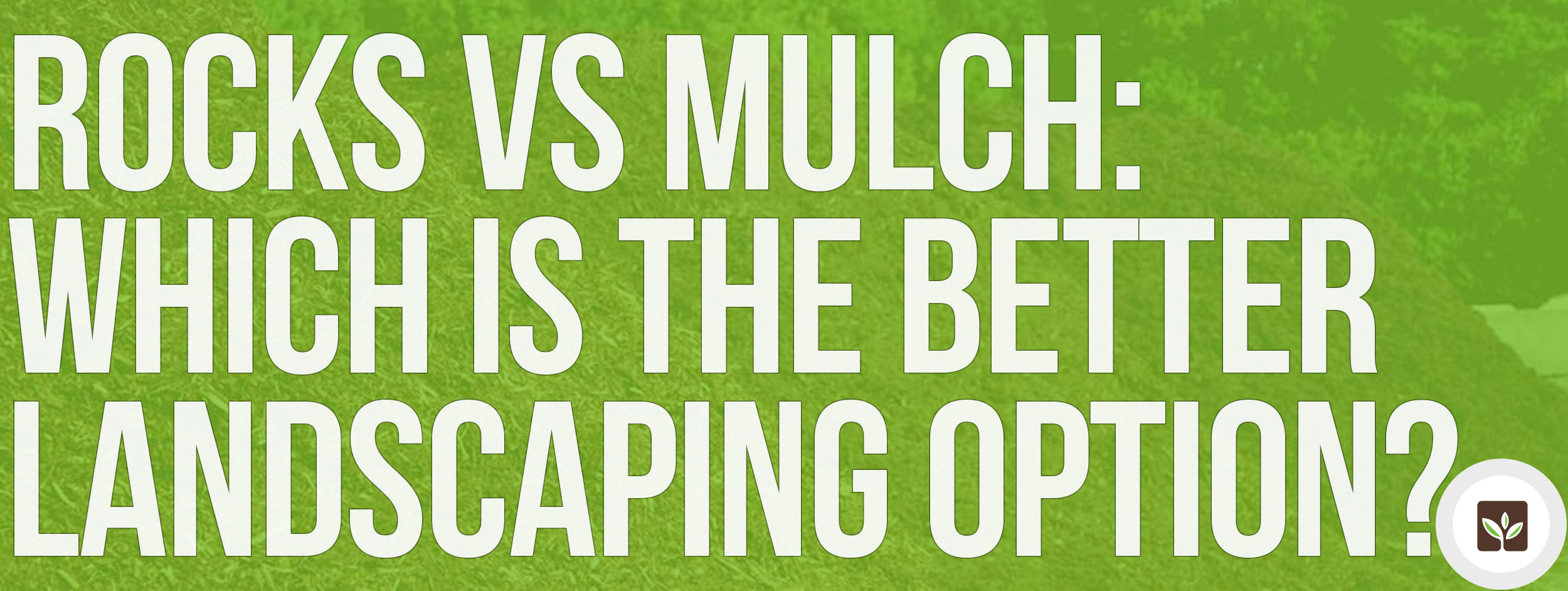
Rocks vs Mulch: Which Is the Better Landscaping Option?
Whether you have just finished planting new flowers, trees, and shrubs or your landscaping is ready for a fresh layer of mulch, mulch is the perfect finishing touch to give your landscape a polished look with bright color that pops. Of course, mulch comes in many styles ranging from organic options like shredded and chip hardwood to inorganic solutions like rock.
When narrowing down your options, it’s a good idea to first decide whether you will choose an organic or inorganic product. Here’s how the two most popular options — organic mulch and rock — compare and when each should be used.
When Should You Choose Organic Mulch?
Organic mulch is the most popular option for landscape mulch in South Carolina for many reasons. Organic mulch delivers the following benefits:
- Suppresses weeds by blocking sunlight to the weed seeds in the ground
- Retains moisture in the soil for less watering and better drought resistance. One study by the University of California found organic mulch can hold up to 3.5″ of water per foot.
- Organic mulch may double the speed of plant growth
- Mulch regulates ground temperature to keep plant roots at a safe temperature
- Mulch reduces soil erosion and compaction
- Depending on the type of mulch you choose, it can help repel plant pests
- Available in a large range of colors and styles
There are a few drawbacks with organic mulch. Because it decomposes, it needs to be replaced every 1 to 4 years. Some types of organic mulch can also contain weed seeds that will sprout.
Organic mulch is a cost-effective and long-lasting solution that both beautifies landscaping and protects plants from drought, soil erosion, and compaction. Unlike rocks, mulch can also be appropriate for playgrounds and other large areas by promoting safety. Playground mulch is an effective way to reduce the risk of serious playground injuries when installed at the proper depth.
When Are Rocks a Good Option?
Landscaping rocks can be a good alternative to organic mulch in some cases. Unlike mulch, rocks won’t break down and virtually need to be replaced. Rocks are also fireproof, wind-resistant, and keep weeds away more effectively and for longer than mulch.
Before adding rocks to your landscape instead of mulch, remember that rocks can increase soil temperature too much, especially light-colored rocks. This can stress plants, especially if they aren’t watered enough. Rocks will not aid in plant growth or add nutrients to the soil like decomposing mulch. If you ever want to remove the rocks, it will have to be done by hand — a long and tedious process. The weight of the rocks can also make it difficult to replace annual plants each year.
Because rocks can get too hot and actually do more harm than good to plants, pea gravel and other solutions aren’t recommended for most flower beds. Still, there are some cases in which rocks are a better choice than organic mulch.
Rocks are best used under decks, close to a building’s foundation, or areas in which you want to prevent plant growth long-term. Rocks are also a good choice to install around hardscape and landscape features like fountains, statues, and benches. In commercial settings, rocks may be used in high-traffic areas, especially where customers or pedestrians frequently take shortcuts to avoid trampled plants and displaced mulch. Rocks are also recommended over mulch in areas with drainage problems as rock allows water to drain quickly while mulch retains moisture.
Categories: Mulch Installation, South Carolina Mulch | Tags: Mulch Installation Services, South Carolina Mulch